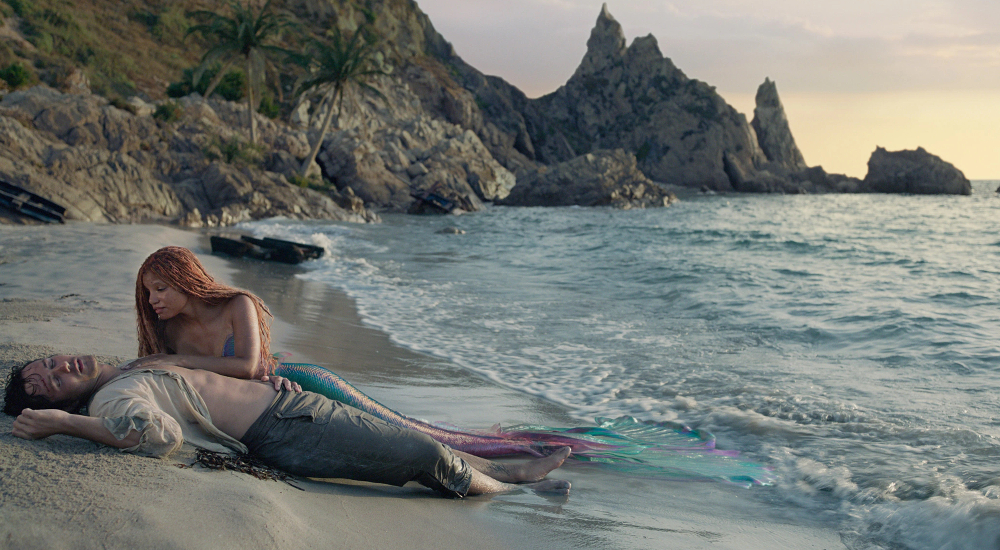Life is full of tough choices."
Home to some of the most remarkable animated stories to ever hit the big screen, Disney has worked their IP closet hard over the last decade, giving classics like The Lion King, Beauty and the Beast, Cinderella, and even Dumbo the live-action treatment. So it was only a matter of time before eyes began to peer over at 1989's The Little Mermaid, an iconic film that has struggled to outswim its controversy.
That controversy primarily centers around casting decisions and is a moot point. Halle Bailey turns in a stunning performance as Arial, giving the mermaid a reincarnation that should make everyone smile. Add Daveed Diggs's voiceover work as Ariel's crab sidekick Sebastian, and there are moments where this film brims with heart and humor.
But outside of those instants, Rob Marshall's retelling mostly sinks. Hard.
While Marshall attempts to modernize the story with three painfully forgettable songs and a heavily unneeded backstory about Price Eric's life as a naval adventurer, the film, as a whole, struggles from the onset. The original clocked in at eighty-three minutes—this one boasts an additional forty-five. A lot needed to go right to justify such an expanded presentation. Spoiler alert: it doesn't.
The original film kickstarted what most recognize as the "Disney Renaissance." That period saw films like Beauty and the Beast, Aladdin, Pocahontas, and The Lion King take over theaters as they told enriching stories with beautiful hand-drawn animation. For The Little Mermaid, that animation style served as the backdrop for the songs of Howard Ashman and Alan Menken, two marvels at their craft who could fit an entire character within the context of a single track.
"Part of Your World" tells us all we need to know about Arial's longing for life above the surface, her free-spirited approach, and her struggles to find what makes her happy. In "Poor Unfortunate Souls," we gain insight into Ursula's view of the world as she provides her cynical, maybe even pessimistic, outlook on love and life. We gather all that within minutes, and after a few run-throughs, we're singing along to their inner thoughts and feelings.
Carefully curated from start to finish, the original animators paid attention to every detail, intertwining the story with visuals that captured your eye. They never took one frame for granted as they showcased a young girl who struggles to find her voice amid a society that never questions the status quo. Those themes still resonate today. And the original songs sail high, thanks entirely to Bailey's vibrato. But Marshall appears confused as he stumbles within a now dark and dreary Atlantica.
In much the same vein as The Lion King and Beauty and the Beast live-action (and CGI-animated) remakes, Marshall works to offer a realistic undersea world filled with fish, vegetation, and debris. But the deep, dark underbelly of the sea is hardly reminiscent of the light, whimsical world we fell in love with decades ago.
It is hard for me to say, but more times than not, visually speaking, The Little Mermaid is ugly.
Marshall has stripped the film of its visual splendor (Flouder anyone?) by sacrificing its beauty for authenticity. Instead of vibrant colors and boisterous personalities, we get drab, murky vegetation flopping aimlessly in the water's current. Even when Ariel hits the surface, her hair plastered over her face, the film struggles to invoke much beauty and magic. And for a story so reliant on a sea witch's manipulative potion, magic and beauty are essential ingredients.

